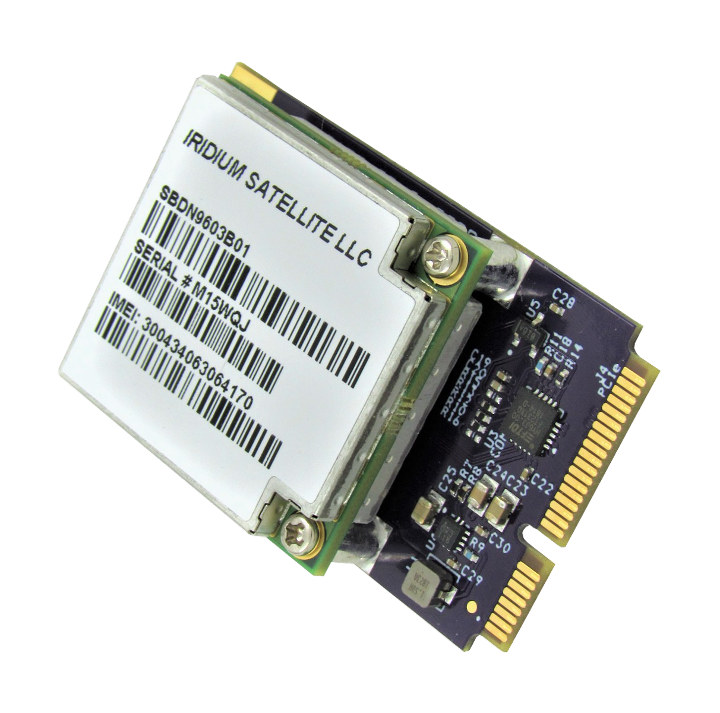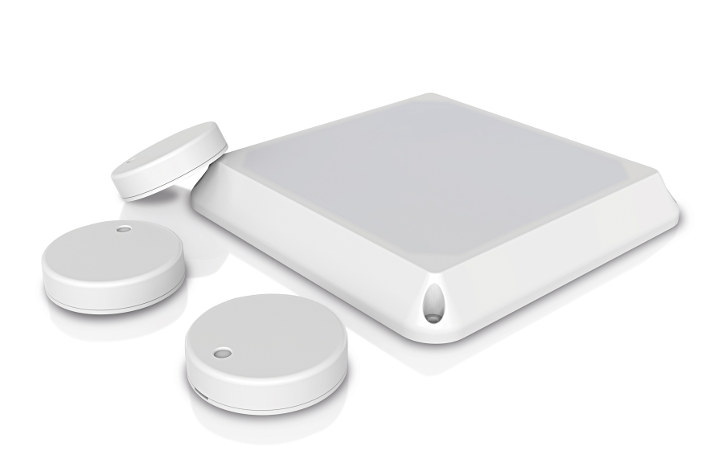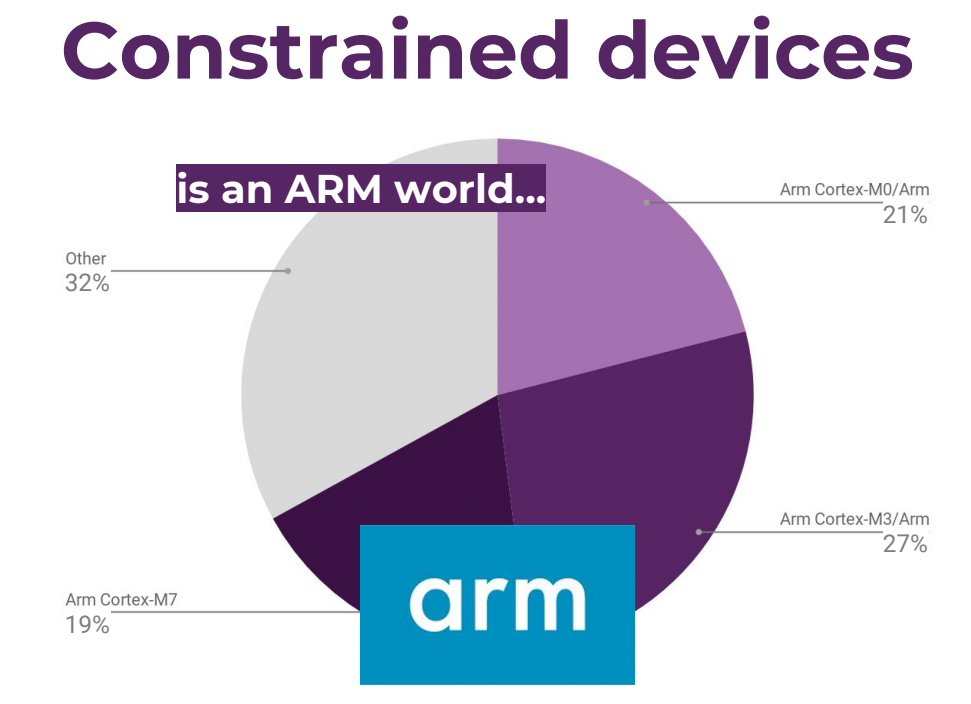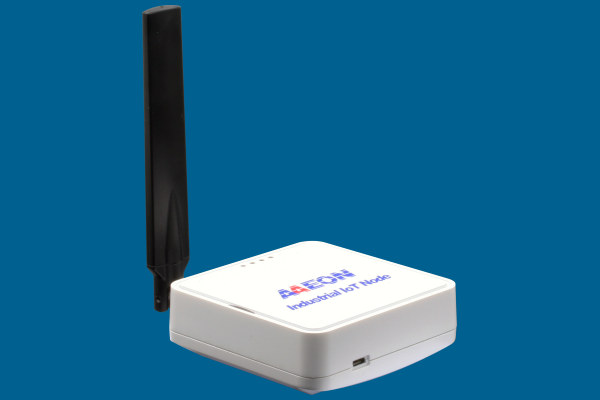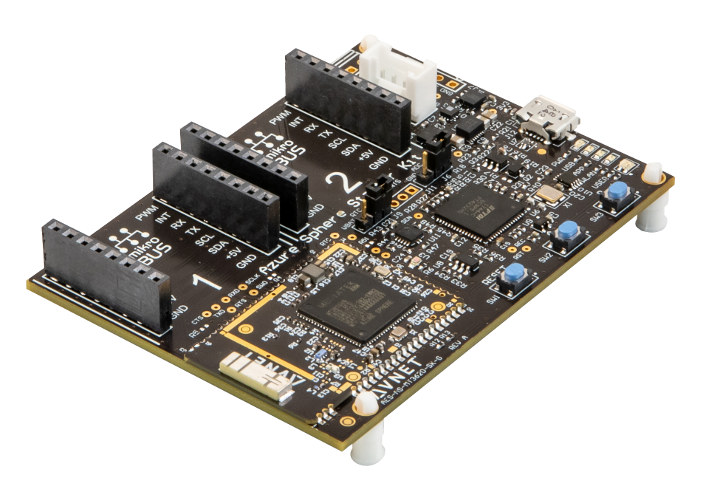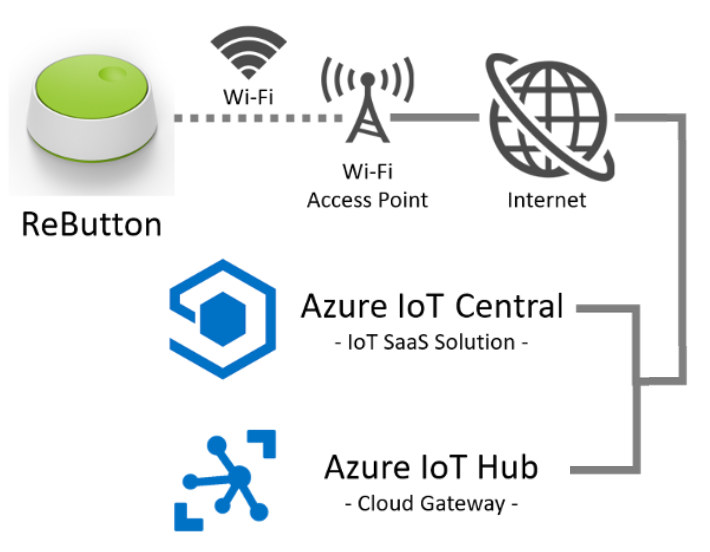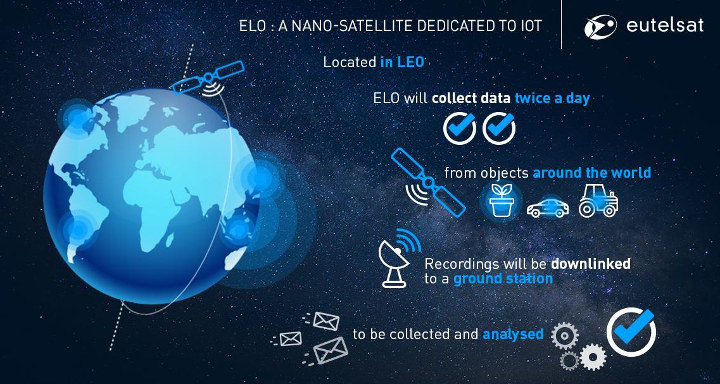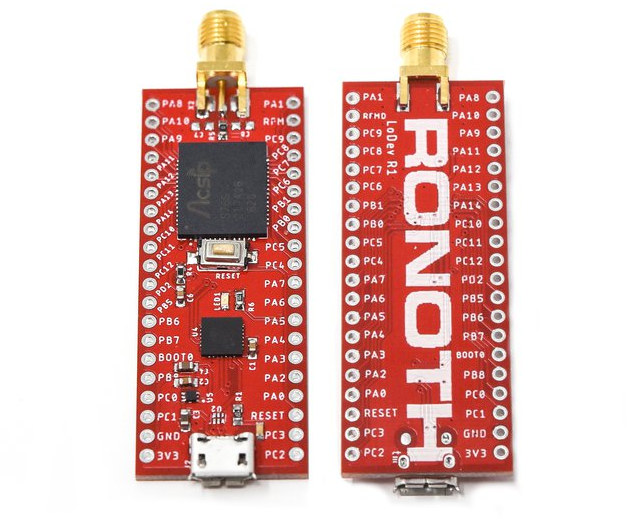Some IoT applications may require 24/7 worldwide coverage, and cellular networks are suitable since they may not provide coverage in remote locations, at sea, or at altitude. The only solution in that case is to go with satellite communication through thank to networks such as the ones provided by Iridium Communications. Gateworks GW16130 makes it easy to add a satellite modem card to your projects thanks to it’s mini PCIe form factor and USB 2.0 interface. Gateworks GW16130 mini PCIe card key features & specifications: Iridium 9603N SBD (Short Burst Data) Satellite Transceiver Max Message payload – 340 bytes upload, 270 bytes download Automatic message notification on incomming messages Operates anywhere on earth including North & South Poles Supports E-mail messages or HTTP POST UART AT command interface Operating frequency – 1616MHz to 1626.5MHz 1.6W Average transmit power -117dBm Receiver sensitivity Onboard u.Fl antenna port for antenna connection Host Interface […]
Ruuvi Node Open-source Node Solution Combines Nordic Semi nRF9160 Cellular SiP & nRF52840 Bluetooth SoC
Back in 2016, we covered Ruuvi Innovations’ Ruuvitag open source Bluetooth & NFC sensor beacon is based on Nordic Semi nRF52832 Bluetooth SoC. The company has now introduced Ruuvi node, another open source multi-purpose, industrial-grade cellular gateway, environmental sensing, and asset tracking node solution based on not one, but two Nordic Semi chips with nRF91 cellular IoT SiP (System-in-Package) with NB-IoT and LTE M (eMTC) connectivity and nRF52840 multi-protocol Bluetooth 5.0 SoC. It’s an early announcement with the launch of the first pilots of Ruuvi Node planned for Q2/Q3 of this year, so the full specifications are yet to be released. However, thanks to a press release on Nordic Semi website, we do know that Ruuvi Node is meant to be maintenance-free, will include a solar panel for energy harvesting (which mean the included 45Wh battery may never run out depending on the application), several environmental sensors, GPS positioning provided […]
Eclipse IoT Survey Report Reveals Arm & Linux Dominate, Security Concerns
The Eclipse IoT Working Group has just released a report asking the global IoT developer community to share their perceptions, requirements, and priorities. And with over 1,700 individuals taking the survey between February and March 2019, the key findings are interesting: IoT drives real-world, commercial outcomes today. 65% of respondents are currently working on IoT projects professionally or will be in the next 18 months. IoT developers mostly use C, C++, Java, JavaScript, and Python AWS, Azure, and GCP are the leading IoT cloud platforms Top three industry focus areas remain the same as last year: IoT Platforms, Home Automation, and Industrial Automation / IIoT. MQTT remains the dominant IoT communication protocol leveraged by developers The Eclipse Desktop IDE is the leading IDE for building IoT applications The last point may be slightly biased because the survey was done by the Eclipse IoT Working Group, so most respondents were already […]
AIOT-ILND01 LoRa Node Comes with AA Battery Holder, Grove Connectors, Optional Enclosure
AAEON specializes in industrial and embedded computing platforms, and usually their products are fairly powerful Windows or Linux based computers, gateways, or network appliances. But in order to provide a complete LoRa solution to system integrators, the company has now introduced AIOT-ILND01 LoRa node powered by STMicro STM32 MCU, and compatible with their AIOT-IP6801IP68 IoT Gateway, as well as other LoRa gateways. AIOT-ILND01 LoRa node specifications: MCU – STMicro STM32L Arm Cortex-M3 MCU @ 32 MHz Connectivity 868MHz/915 MHz LoRa via Semtech SX1276 chipset 1x SMA antenna hole, 1x IPEX antenna hole Sensors – Temperature & humidity sensor, 3-axis accelerometer Expansion – 3x GROVE connectors: 1x UART1 (RS-232/422/485), 1x UART2 (Tx/Rx), 1x I2C Misc – 4x user LEDs, boot select button, 2x user buttons, 1x reset button Debugging – JTAG header Power Supply 5V via micro USB port Battery holder for 2x 14500 rechargeable Lithium-ion battires or AA batteries Dimensions […]
Avnet Azure Sphere MT3620 Starter Kit Features Two mikroBUS Sockets
Microsoft and MediaTek worked together to design MediaTek MT3620 Arm Cortex-A7 processor with Microsoft Pluton security sub-system required for Microsoft Azure Sphere IoT ecosystem. We’ve already covered boards from Seeed Studio including the just announced low cost MT3620 mini dev board. But Microsoft also cooperated with Avnet which has recently introduced Azure Sphere MT3620 Starter Kit equipped with two mikroBUS sockets enabling the platform to leverage one of the 633 “click boards” available from MikroElektronika. Just like the latest Seeed Studio board, Avnet Azure Sphere MT3620 Starter Kit is comprised as a baseboard with a soldered-on CPU module that can later be used for mass-production is a custom designed board. Specifications: Azure Sphere MT3620 CPU Module Mediatek MT3620AN single core Arm Cortex-A7 processor @ 500 MHz with 4MB SRAM, dual core Arm Cortex-M4F real-time core @ 200 MHz with 64KB RAM, Microsoft Pluton security sub-system, and WiFi. Storage – TBD […]
ReButton WiFi Button Features MXCHIP EMW3166 Module
We’ve previously covered WiFi buttons based on ESP8266 processor, but Seeed Studio has just launched ReButton “developer device” that serves the same purpose but features STM32 based MXCHIP EMW3166 WiFi module instead, exposes one I2C grove connector, and is preloaded with sample firmware that triggers Azure IoT Central or Azure IoT Hub. ReButton hardware specifications: MCU module – MXCHIP EMW3166 module including STM32F412 Arm Cortex M4F MCU @ 100 MHz with 256KB SRAM, 1MB+2MB SPI Flash, and Cypress BCM43362 WiFi chip Input – 1x Push button Output – 1x RGB LED Extension – 1x I2C Grove connector (3.3V I/O) Debugging – 1x SWD pads, 1x UART for debugging Misc – 1x Jumper switch Power supply 2x AAA Alkaline batteries (LR03) Internal supply voltage – 3.3V Dimensions – 70 x 70 x 25mm The ReButton comes preloaded with an Arduino sketch that handle key presses and send a trigger to Azure […]
Sigfox Targets Worldwide Coverage with Satellite Launch
LPWAN technologies such as NB-IoT, Sigfox, and LoRa deliver low power, long range communication at low bitrate and can be used for asset tracking, environmental monitoring, water & electricity meters, and so on. The line-of-sight range between the closest gateway and nodes is usually 10 to 20 km, and coverage can be expanded by connecting several gateways to form a network. However, this is not workable in all locations worldwide, so Sigfox plans to launch a Sigfox satellite in collaboration with Eutelsat in order to provide coverage in places like large deserts such as the Sahara desert, the two poles, as well as oceans as explained by Franck Siegel, chief operating officer at Sigfox. This will for instance enable tracking and monitoring of oil platforms and vessels. The press release does not explains much except Sigfox and Eutelsat will test the first Satellite in H2 2019 before the commercial launch […]
LoDev S76S Board Combines STM32, LoRa and Arm Mbed Support (Crowdfunding)
There are already plenty of low power boards with a LoRa radio, but Ronoth offers another option with their tiny LoDev S76S LoRa development board featuring AcSip S76S SiP (system-in-package) with STMicro STM32L073 microcontroller, a Semtech SX1276 LoRa radio, and other components. While most hobbyist LoRa boards are designed to be programmed with the Arduino IDE, LoDev S76S is instead compatible with Arm Mbed. LoDev S76S board specifications: SiP – AcSip S76S system-in-package with STMicro STM32L073 Arm Cortex-M0+ microcontroller @ 48 MHz with 192 kB flash, 20 kB RAM Semtech SX1276 chip supporting global 863MHz ~ 928MHz ISM Bands RF front-end LoRa Connectivity Receiver Sensitivity – down to -146 dBm TX Power – adjustable up to +20 dBm Range – up to 15 km coverage in suburban areas and up to 5 km coverage in urban areas SMA antenna connector USB – 1x micro USB port for programming and power […]


